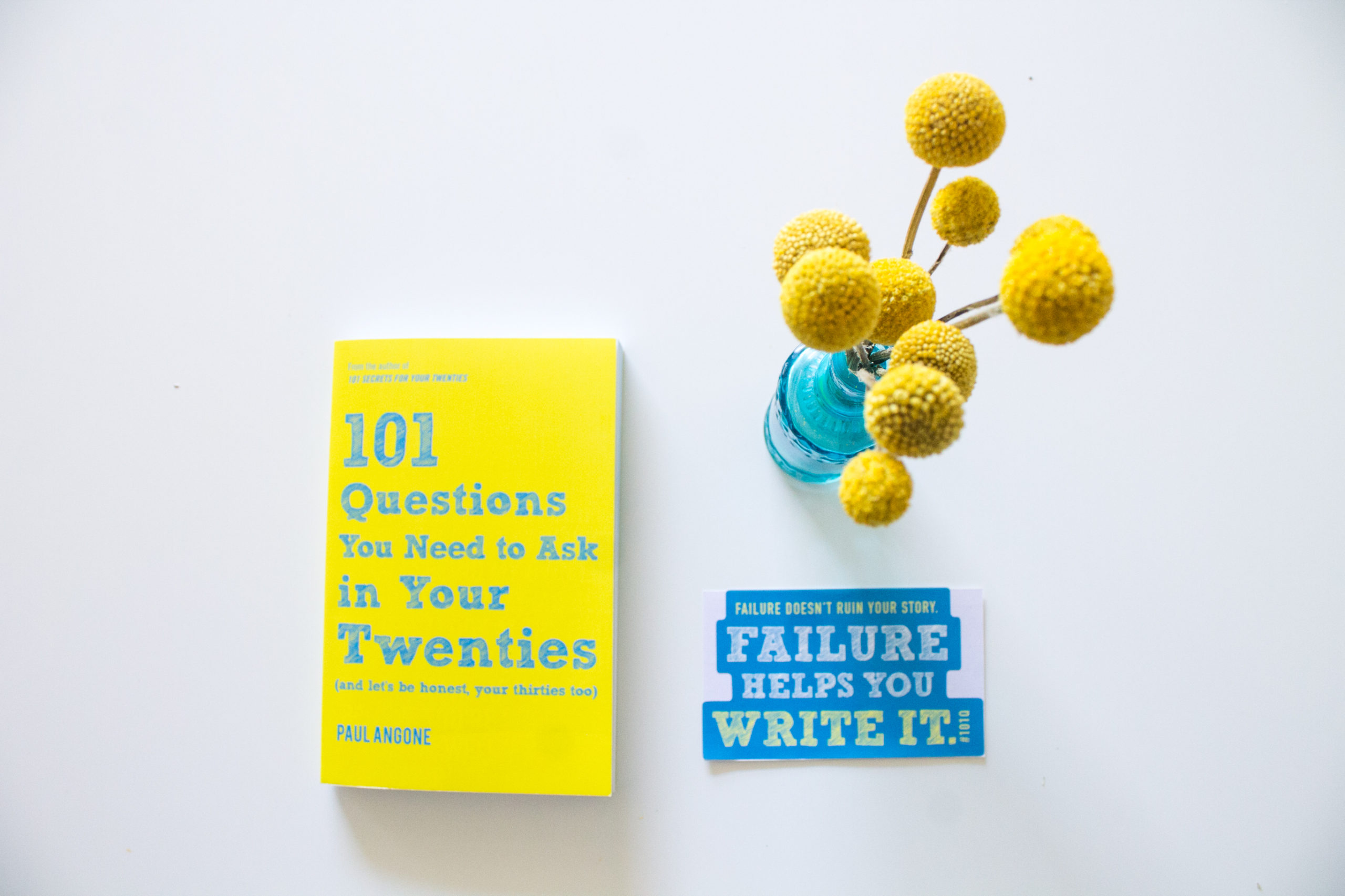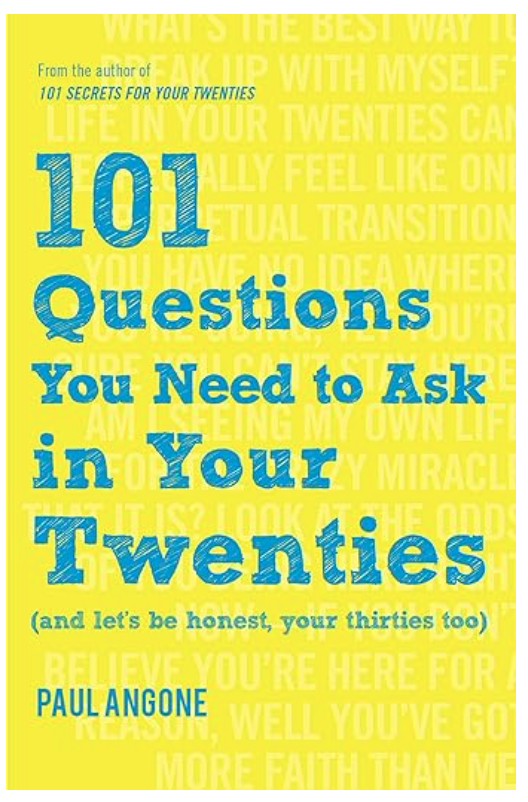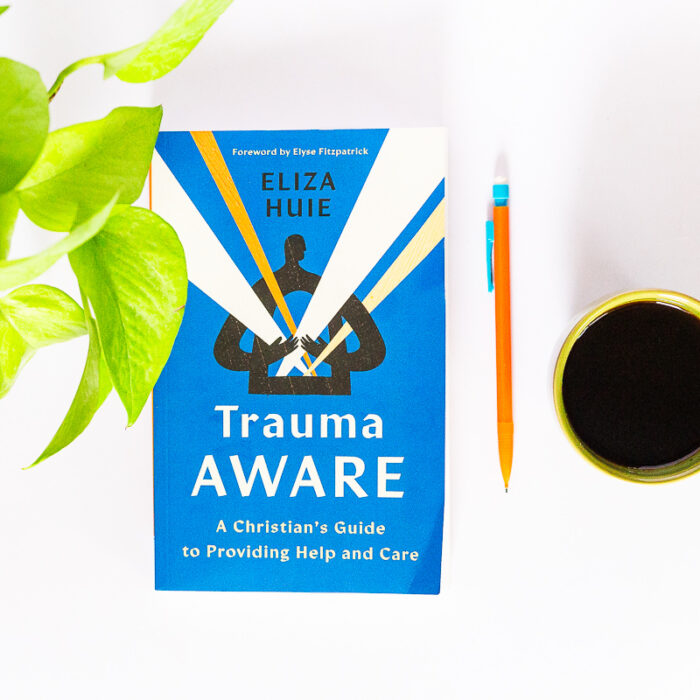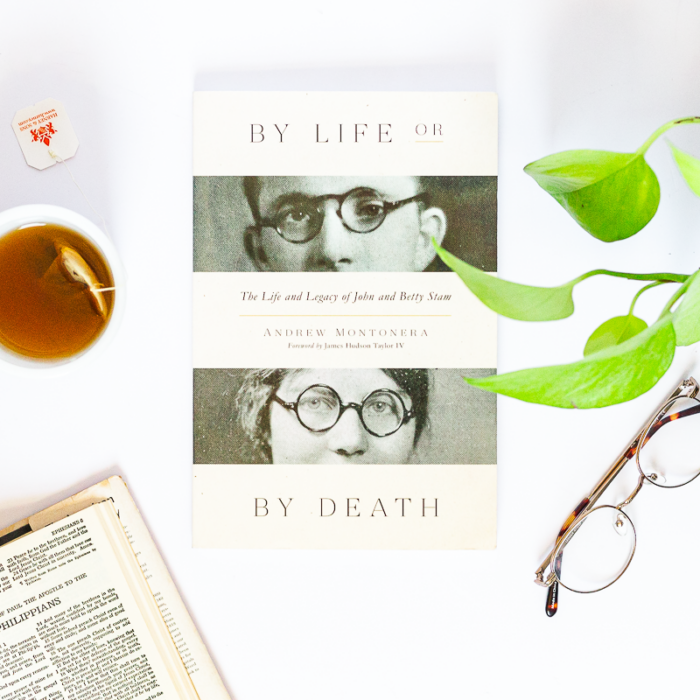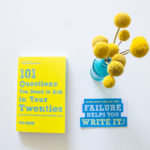This post contains affiliate links
101 Questions You Need to Ask in Your Twenties is the second book from author and speaker Paul Angone. While I haven’t read his first book, All Groan Up, I enjoyed 101 Questions. Angone uses humorous personal anecdotes to challenge twentysomethings (and even thirtysomethings) to think through various aspects of their lives. The tone used throughout the book is very understanding of young people who are trying to navigate adulthood.
Even though there are 101 questions to read through, the book is split up by the questions rather than by chapters which I believe its target demographic will appreciate.
These questions guide readers through how to be successful in various types of relationships, how to pursue doing what you enjoy rather than just a 9 to 5 job, how to cultivate your creativity, and how to avoid the negativity that comes with the Millennial stereotype.
I don’t agree with every source that Angone referred to, (specifically the use of quotes by Anne Lamott and Oprah – see pages 84 and 216).
Although Anne Lamott speaks and writes of Jesus, I am not sure that she loves and follows Him. Regarding her faith, blogger and author Tim Challies found the following as he read her book Grace (Eventually), “Lamott seems to embrace a very wide faith that extends far beyond the bounds of Scripture. She celebrates things the Bible forbids and hates things the Bible commands us to love.”
Regarding Oprah, Al Mohler, president of The Southern Baptist Theological Seminary, has stated, “. . . Oprah offers forgiveness without atonement. Confession of inadequacy is presented as a sufficient remedy for sin and wrongdoing. God is effectively out of the picture as lawgiver or judge, and there is no room for the cross of Christ as atonement for sin.”
I’m not saying that Christian authors can never use sources outside of the Bible. I am saying, however, that Christian authors must exercise a particular level of caution as to which sources they use. I have seen too many brothers and sisters easily trust sources that are referred to by other Christians (or sources that claim to be Christian) without knowing how those sources truly align with Scripture. I do believe a reader has a responsibility to research what they are reading. I also believe an author has an equal, perhaps even greater responsibility due to the audience they will reach as a result of their platform.
(To my audience here, I highly encourage you to study, know, and treasure God’s word over any book, Christian or otherwise, so you may gain a heart of wisdom and really, know who God is according to His Word.)
I don’t think Paul Angone agrees wholeheartedly with everything from the ladies whose quotes he included. Rather, it seems that their quotes fit with what he was writing about. I don’t think it was wrong or sinful for him to include them in the book but I am unsure as to whether it was wise.
The questions asked in the book are indeed thought-provoking but since the book was released by a Christian publisher, I would have enjoyed seeing how the questions are supported by specific verses of the Bible. Since little Scripture was used throughout 101 Questions, I wonder if the questions asked will truly cause sustainable growth in the lives of young people as the questions are not pointed back to God who causes growth.
These qualms aside, I found 101 Questions easy to read and enjoyable. Although I’m almost out of my twenties, I found myself challenged and encouraged by many of the questions in this book.
101 Questions You Need to Ask in Your Twenties is available now at all major booksellers.
I received 101 Questions You Need to Ask in Your Twenties compliments of Moody Publishers in exchange for my honest review.

